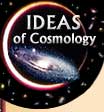 |
| Ptolemy
as imagined in an old drawing, with a quadrant and the muse Astronomia.
|
Was
Ptolemy
the greatest astronomer of antiquity or the most successful fraud in the
history of science?
His
observations match his tables in an uncanny way; agreement between theory
and observation are too good to be true. Seemingly Ptolemy fabricated
his stated observations.
Agreement
between
his numerical parameters and modern values is, however, too close to be
fortuitous. Probably Ptolemy had a large number of observations, and errors
largely cancelled each other out in calculations of parameters. Next,
Ptolemy might have selected from among his observations a few in best
agreement with the theory, and then presented these examples to illustrate
the theory.
Ptolemy
lacked our modern understanding of error ranges, standard deviations,
and the use of mean values from repeated observations - concepts that
would have enabled him to propound a theory not necessarily in total and
absolute agreement with every data point obtained, but in a less strict
agreement with all the data points to within a statistically defined interval
around a mean value. Instead, absent any tolerable fluctuation in the
agreement between theory and observation, every measurement would be understood
as an exact result. Consequently, judicious selection from among many
measurements was required.
We
also should remember
that the Almagest is not a modern research paper, but was a textbook.
Ptolemy's intent was to present procedures and sample data, showing future
astronomers how it was done and enabling them to introduce their own observations
over a longer temporal baseline in order to derive even better parameters.
Any
fudging or fabrication by Ptolemy may have been understood by him as little
fibs allowable in the neatening up of his pedagogy, not as lies intended
to mislead his readers about crucial matters. The Greek astronomical tradition
was far more concerned with general geometrical procedures than with specific
numerical results. Modern norms of science did not yet exist.
|


